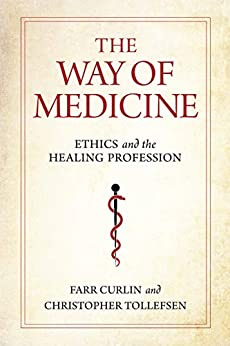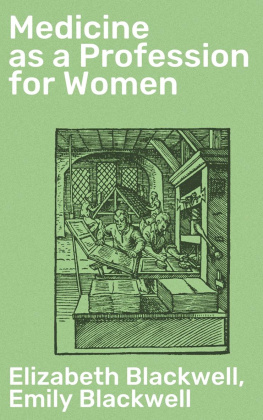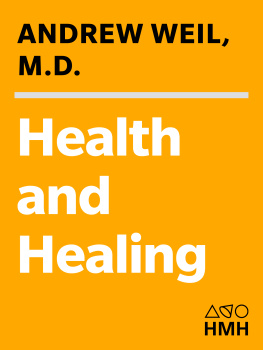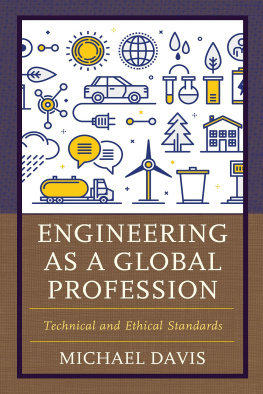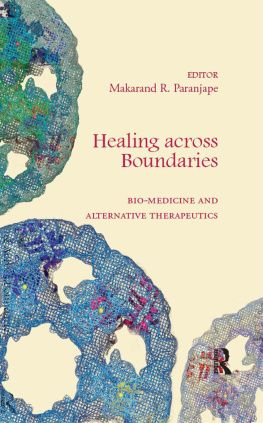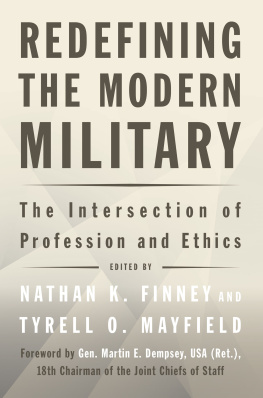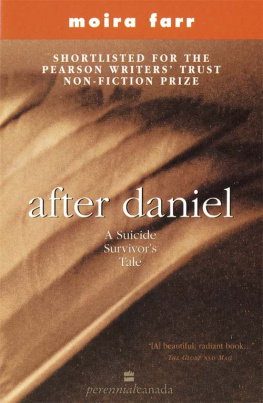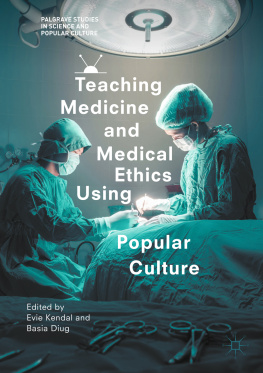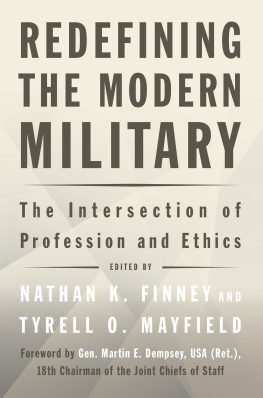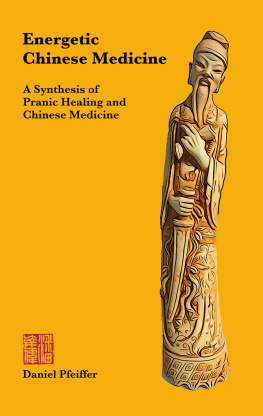Farr Curlin - The Way of Medicine: Ethics and the Healing Profession
Here you can read online Farr Curlin - The Way of Medicine: Ethics and the Healing Profession full text of the book (entire story) in english for free. Download pdf and epub, get meaning, cover and reviews about this ebook. year: 2021, publisher: University of Notre Dame Press, genre: Science. Description of the work, (preface) as well as reviews are available. Best literature library LitArk.com created for fans of good reading and offers a wide selection of genres:
Romance novel
Science fiction
Adventure
Detective
Science
History
Home and family
Prose
Art
Politics
Computer
Non-fiction
Religion
Business
Children
Humor
Choose a favorite category and find really read worthwhile books. Enjoy immersion in the world of imagination, feel the emotions of the characters or learn something new for yourself, make an fascinating discovery.
- Book:The Way of Medicine: Ethics and the Healing Profession
- Author:
- Publisher:University of Notre Dame Press
- Genre:
- Year:2021
- Rating:5 / 5
- Favourites:Add to favourites
- Your mark:
- 100
- 1
- 2
- 3
- 4
- 5
The Way of Medicine: Ethics and the Healing Profession: summary, description and annotation
We offer to read an annotation, description, summary or preface (depends on what the author of the book "The Way of Medicine: Ethics and the Healing Profession" wrote himself). If you haven't found the necessary information about the book — write in the comments, we will try to find it.
Farr Curlin: author's other books
Who wrote The Way of Medicine: Ethics and the Healing Profession? Find out the surname, the name of the author of the book and a list of all author's works by series.
The Way of Medicine: Ethics and the Healing Profession — read online for free the complete book (whole text) full work
Below is the text of the book, divided by pages. System saving the place of the last page read, allows you to conveniently read the book "The Way of Medicine: Ethics and the Healing Profession" online for free, without having to search again every time where you left off. Put a bookmark, and you can go to the page where you finished reading at any time.
Font size:
Interval:
Bookmark:
NOTRE DAME STUDIES IN MEDICAL ETHICS AND BIOETHICS
O. Carter Snead, series editor

The purpose of the Notre Dame Studies in Medical Ethics and Bioethics series, sponsored by the de Nicola Center for Ethics and Culture, is to publish works that explore the ethical, cultural, and public questions arising from advances in biomedical technology, the practice of medicine, and the biosciences.
The Way of Medicine
Ethics and the Healing Profession
FARR CURLIN
and
CHRISTOPHER TOLLEFSEN
University of Notre Dame Press
Notre Dame, Indiana
Copyright 2021 by the University of Notre Dame
Notre Dame, Indiana 46556
All Rights Reserved
Published in the United States of America
Library of Congress Control Number: 2021942665
ISBN: 978-0-268-20085-5 (Hardback)
ISBN: 978-0-268-20086-2 (Paperback)
ISBN: 978-0-268-20084-8 (WebPDF)
ISBN: 978-0-268-20087-9 (Epub)
This e-Book was converted from the original source file by a third-party vendor. Readers who notice any formatting, textual, or readability issues are encouraged to contact the publisher at undpress@nd.edu
To our spouses, Kimberly Curlin and Laurie Tollefsen,
who merit more thanks and praise
than we can possibly give here
CONTENTS
| Preface: A Perplexed Physician | |
| Acknowledgments | |
| Introduction: A Profession in Crisis | |
| ONE | The Way of Medicine |
| TWO | The Requirements of Practical Reason |
| THREE | The Doctor-Patient Relationship |
| FOUR | Autonomy and Authority |
| FIVE | The Rule of Double Effect |
| SIX | Sexuality and Reproduction |
| SEVEN | Abortion and Unborn Human Life |
| EIGHT | Medicine at the End of Life |
| NINE | Last-Resort Options |
| TEN | Conscientious Medicine |
| Notes | |
| Index |
PREFACE
I sensed early in my medical training that something had gone wrong at the heart of our profession. I came to medical training confident that caring for those who are sick would readily fit into my vocation as a Christian, not because Christians have a lock on healingby no means. Rather, because everyonewhether Jew, Christian, Muslim, atheist, or otherknows that healing is good work, even Gods work. I knew that modern physicians had gotten involved in a few practiceselective abortion and assisted suicide in particularopposed both by traditional Christianity and by traditional medical ethics. But these practices were on the margins, I thought, exceptions to medicines otherwise consistent orientation toward healing. It did not take long for me to realize that I was mistakenthat these overtly controversial practices expressed deeper changes at the heart of the medical profession. Having come over the second half of the twentieth century to provide all kinds of interventions that were not so obviously a part of healing those who are sick, physicians could no longer say what it meant to heal. In seven years of medical school and residency training, I do not recall a medical educator ever encouraging me or my fellow trainees to consider what medicine is for.
How could we clinicians-in-training find our way if our teachers could not tell us where that way leads? We learned to take our bearings by setting aside the question of what medicine is for and instead focusing on getting where we were asked to go as efficiently and effectively as possible. Those were the heady days of evidence-based medicine. Medical educators advocated the conscientious, explicit, and judicious use of current best evidence in making decisions about the care of individual patients. Unfortunately, our teachers had much less to say about what norms we should conscientiously uphold and by what standards we should evaluate whether our use of evidence had been judicious. The resulting vacuum was filled with the default norm of contemporary medicine: support the autonomous choices of patients as long as doing so is not illegal, infeasible, or unequivocally harmful.
Indeed, the language of conscience and judgment proved to be the residue of a tradition of practice that the profession of medicine seemed determined to leave behinda tradition associated with paternalism, patriarchy, and other specters of a repressive past. To avoid recapitulating the injustices of that past, we learned to ask not what ought to be done but who decides what ought to be done. After all, what would give a physician the authority to judge what is good for someone else? Shouldnt patients decide what happens to their bodies? We were taught various ethical principles we might invoke to describe a clinical decision, but we also learned that in the end only the patient could decide which of these principles should govern in their particular case. Being patient-centered, we discovered, meant respecting patients right to judge what is good for them. So we made patient preferences our guide, and we resisted the temptation to impose our own values under the pretense of conscience and clinical judgment. The safest route was to separate the personal from the professional, keeping the former from intruding on the latter.
I have never made peace with this notion of separating the personal from the professional. I had set out to practice medicine because caring for the sick seemed to fit into the Christian vocation to love God and ones neighbor. In training, however, Christian commitments largely were construed as personal values that must be kept from interfering with my professional obligations. While I puzzled over how that could be so, I observed that separating the personal from the professional reified the sterility and detachment of clinical encounters that left patients dissatisfied and physicians dispirited.
How did we end up with this idea that medicine requires compartmentalizing the personal away from the professional? How did medical educators end up teaching that good physicians must be willing to be bad Christians, Jews, or Muslims?
I did not find satisfying answers to these questions, but who was I to challenge the status quo? This ancient profession went on before me and will go on after me, whether I like it or not. Perhaps in time I would see that by keeping my personal and professional lives separate, focusing on scientific data, and deferring to others to tell me what to pursue, I would become a better physician than I had imagined. I would find that to love my neighbors means to do what they ask me to do even when that goes against my better judgment. And if I could not reconcile my personal moral sensibilities with the standards of the profession, I could find a different line of work. I had not been conscripted, after all.
But further experience only confirmed my misgivings that the medical profession had lost its way. Indeed, in the name of respect for patient autonomy, the profession seemed to have given up any claim to know where that way should lead. The medical profession trains its members to defer to patients regarding what goals physicians are to pursue, reserving to the clinician the authority only to insist that those ends be pursued in a scientifically informed and effective manner. So, for example, a physician cannot know whether he should sterilize a patient or offer her assisted reproductive technologies until and unless the patient tells him what she wants. The physician can decide, however, which surgical technique is most effective for sterilization and which exogenous hormones will effectively hyperstimulate the ovaries. Many medical ethicists likewise have abandoned any claim to know what medicine is for. As a member of the clinical ethics faculty at a premier academic medical center, I joined colleagues in spirited debates about who was authorized to make a particular clinical decision, but we almost never discussed what that person should decide, or why. We had learned to police ourselves to avoid the presumption of claiming to know what good medicine required for this or that patient.
Next pageFont size:
Interval:
Bookmark:
Similar books «The Way of Medicine: Ethics and the Healing Profession»
Look at similar books to The Way of Medicine: Ethics and the Healing Profession. We have selected literature similar in name and meaning in the hope of providing readers with more options to find new, interesting, not yet read works.
Discussion, reviews of the book The Way of Medicine: Ethics and the Healing Profession and just readers' own opinions. Leave your comments, write what you think about the work, its meaning or the main characters. Specify what exactly you liked and what you didn't like, and why you think so.

